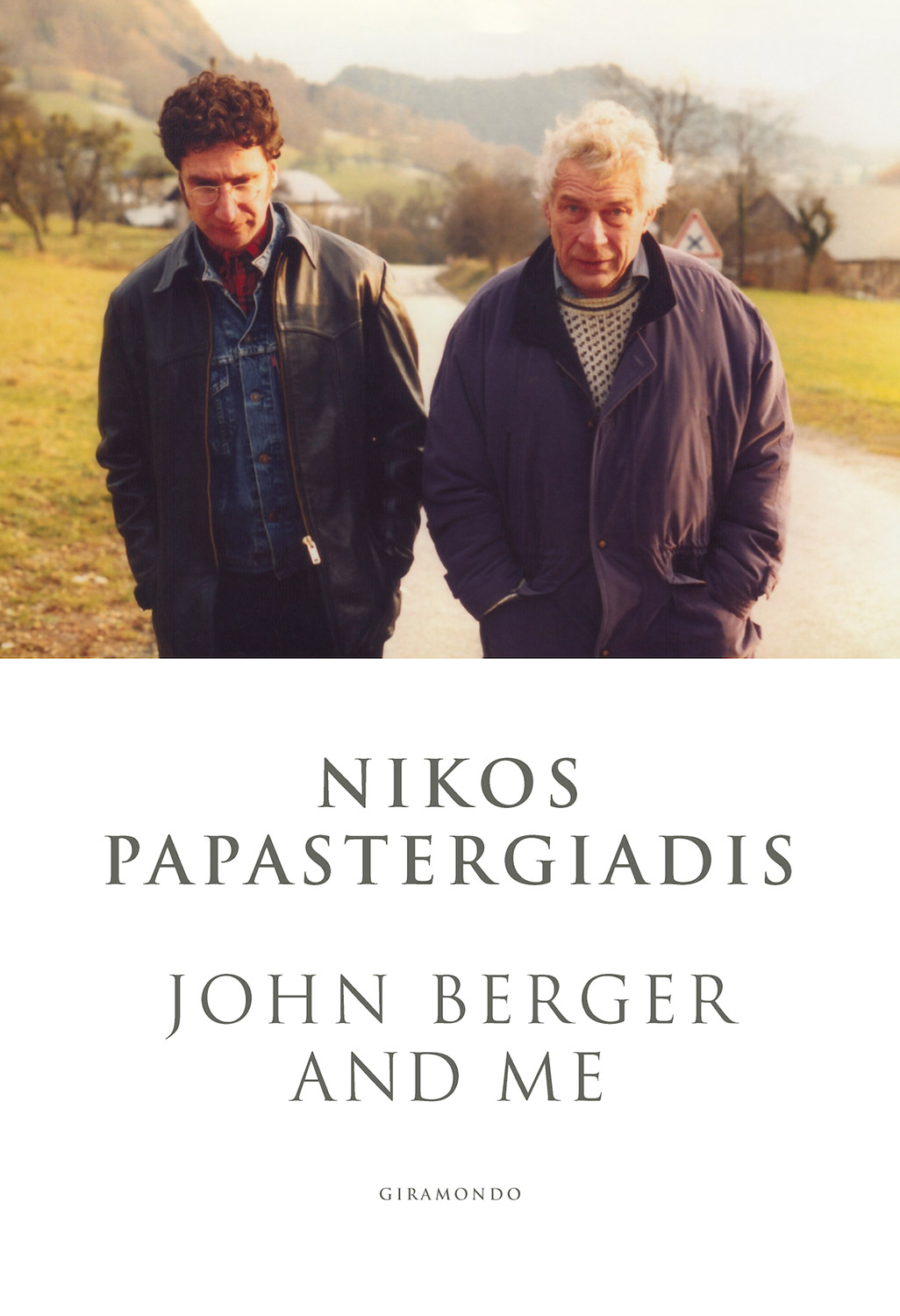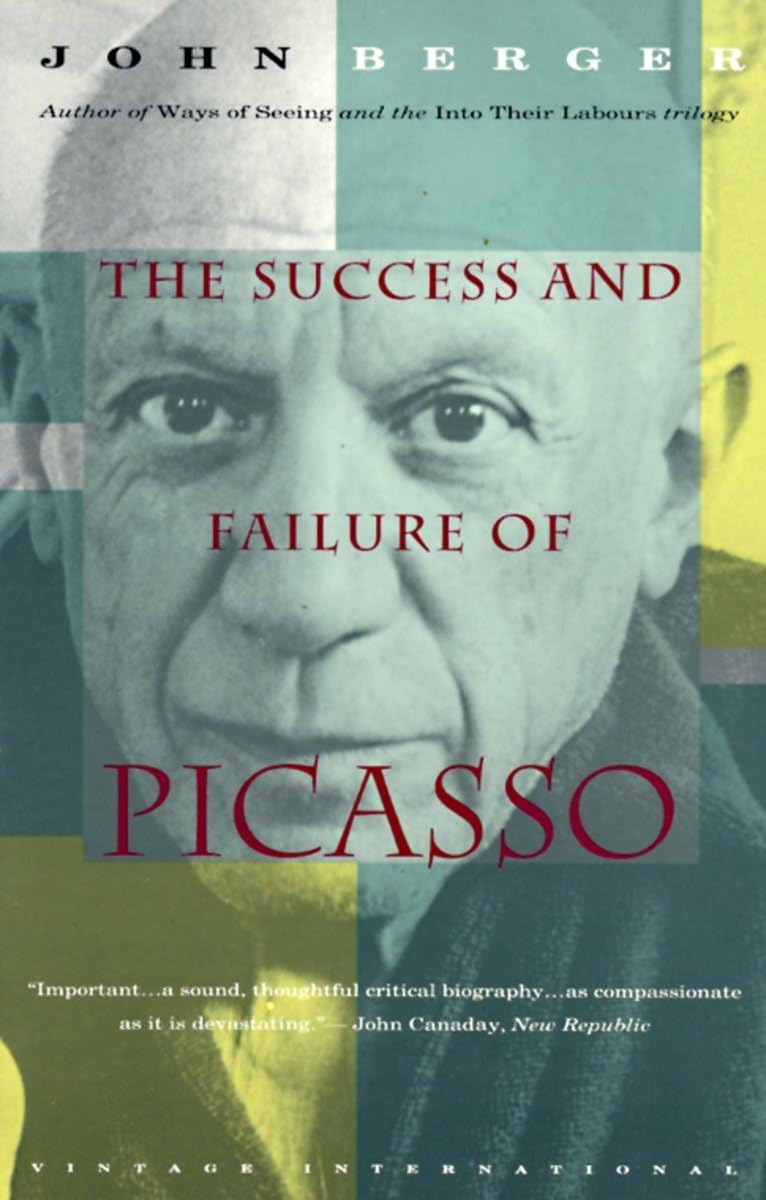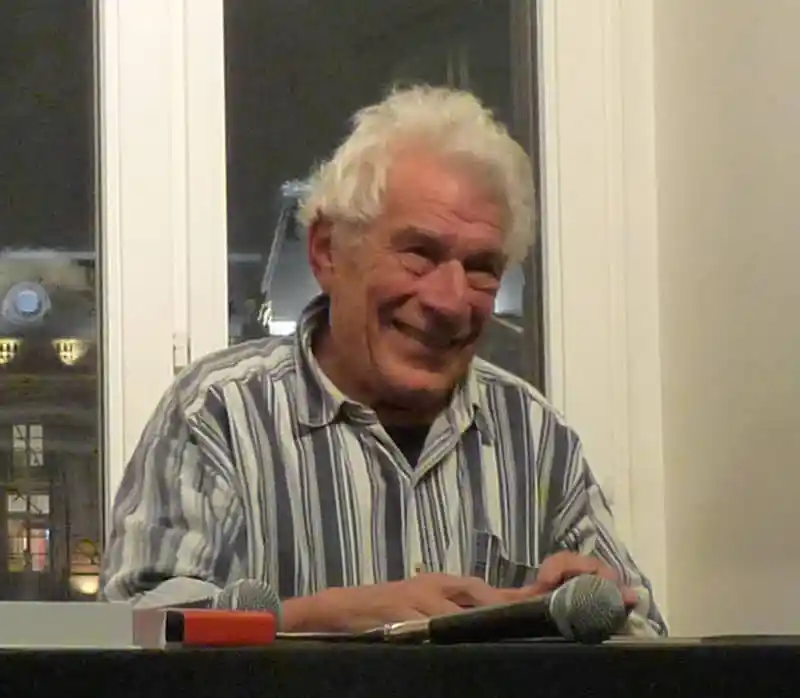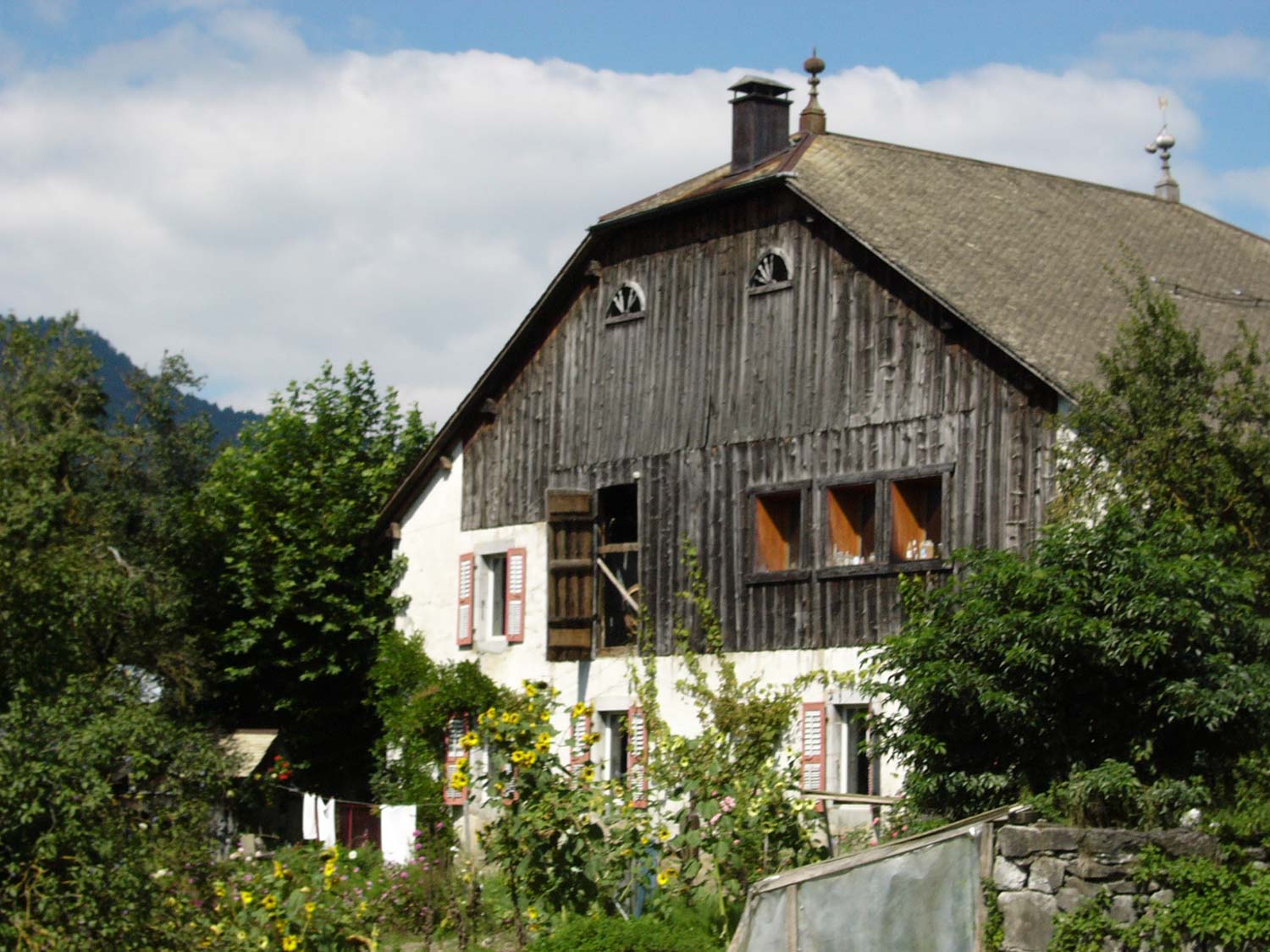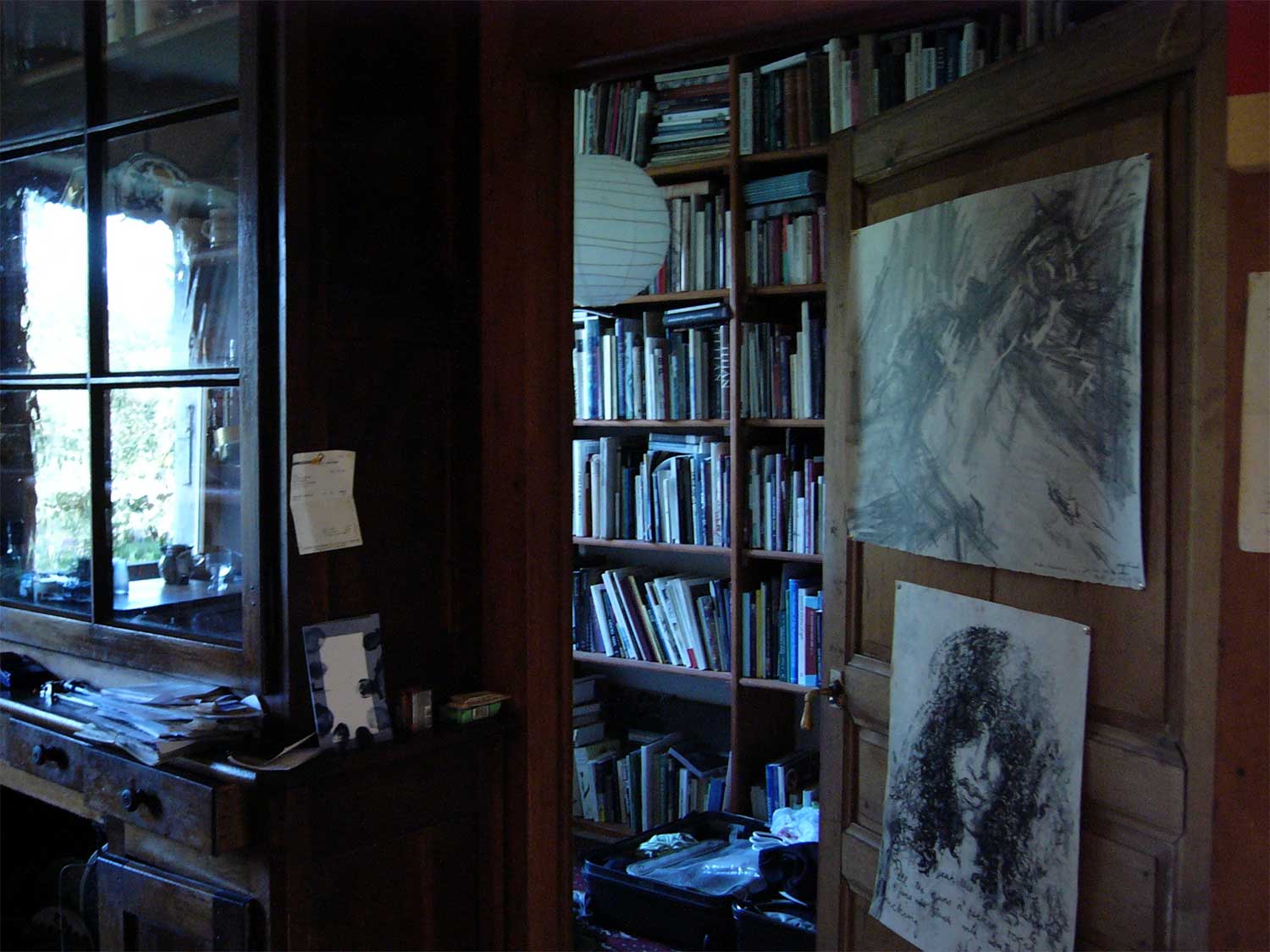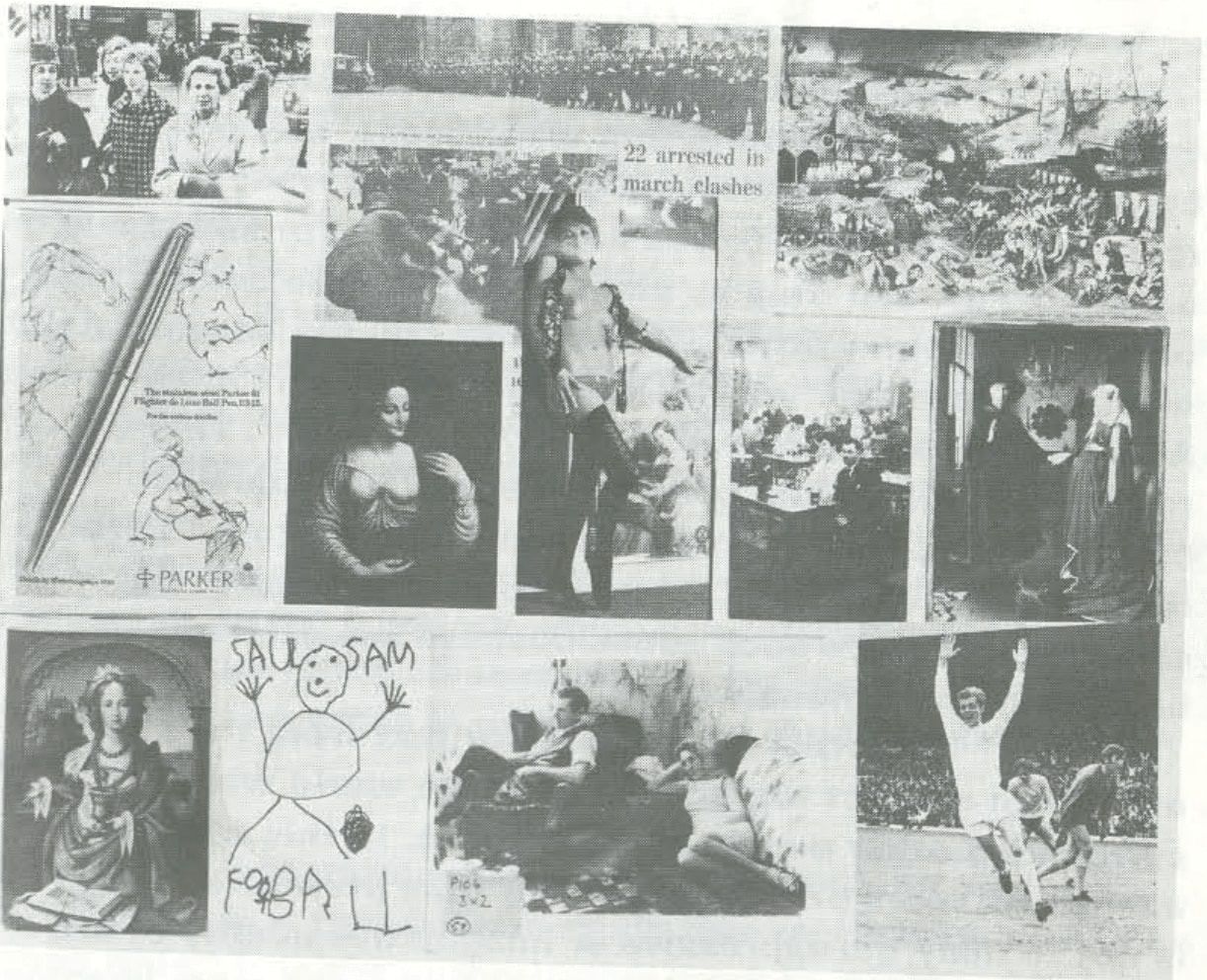In this episode of Biographers in Conversation, the eminent sociologist and author Dr Nikos Papastergiadis chats with Dr Gabriella Kelly-Davies about his choices while crafting John Berger and Me.
Nikos won the 2025 Michael Crouch Award for a Debut Work for his memoir of his deep friendship with the late English writer and art critic. ‘The judges chose John Berger and Me for the debut award for its originality and clever, non-linear but accessible structure’, said Senior Judge Sylvia Martin. ‘The quality of Nikos Papastergiadis’s perceptive, lyrical and subtly humorous prose also shone among a highly competitive field. A unique, stunning blend of biography and memoir.’
John Berger and Me
John Berger and Me is a heartfelt tribute to Nikos’s intense friendship with the late John Berger, the renowned English writer and art critic. Bound by a shared love of art, the story of Nikos and John unfolds across continents and cultures, illuminating how an unlikely mentorship blossomed into a lifelong bond.
John Berger was a successful author and artist who lived in England before he moved to a remote Alpine peasant village in the Haute-Savoie, France. John Berger and Me covers a period of ten years in the 1990s when the young Nikos spent many summer months with the distinguished author, living in the family house and sharing duties such as the gathering of the harvest.
A Friendship Across Continents
Nikos Papastergiadis first met John Berger as a doctoral student at Cambridge in the late 1980s, while drafting his thesis on Berger’s work. What began as an academic connection soon became an unusual friendship: John Berger invited Nikos to spend time at his home in Quincy, a tiny peasant village in the French Alps. For over ten summers throughout the 1990s, Nikos lived with John’s family in this remote village. Immersing himself in Berger’s rustic world, he helped bring in the hay, tended the garden, rode motorbikes with John through winding mountain roads, and embraced the rhythms of rural life. These shared summers in Haute-Savoie forged deeps bonds between the two men.
Nikos and the famous writer-turned-peasant-farmer found common ground in art, conversation and strenuous work under the alpine sun. This cross-cultural friendship, rooted in both intellectual kinship and physical labour, is the heart of John Berger and Me. Fittingly, the book’s cover features a photograph of Nikos and John together in the French Alps. It’s an image that captures the warmth and authenticity of their relationship.
Blending Two Lives into One Story
Rather than writing a biography of John Berger or a purely personal memoir, Nikos chose to interweave Berger’s story with his own. ‘This hybrid approach came naturally to me’, Nikos explained, ‘because the threads of our lives were so intertwined that separating them would have lost something essential.’
Braiding Memoir and Biography
John Berger and Me unfolds as a sequence of anecdotes that include memories of Berger’s life and ideas. These stories sit alongside Nikos’s reflections on his parents, childhood and journey from immigrant family roots to becoming a scholar. By blending the two narratives, Nikos paints a richer portrait of how John’s ideas on art, storytelling and migration resonated personally for him.
John Berger was interested in the experiences of migrants and the search for belonging. Nikos’s own family history of migration from Greece to Australia provided a mirror to these themes. He felt that sharing John’s story alongside his own enabled him to explore broader questions of home, identity and friendship in a more intimate way.
This structure also honours Berger’s influence on his young mentee. Nikos deliberately chose to braid these narratives to pay homage to his mentor while also acknowledging that his own story had been profoundly shaped by John Berger’s presence and perspective.
Writing from Memory in Lockdown
A fascinating aspect of Nikos’s writing process was that the initial draft of John Berger and Me was written entirely from memory. The idea for John Berger and Me arose almost by accident during the pandemic lockdowns. In early 2020, Nikos was invited to give a lecture about John Berger, but due to strict COVID restrictions in Melbourne, he couldn’t access his office or any archival materials. Instead of postponing the project, he embraced the challenge: every morning, he would sit on his daybed at home with pen and paper and write whatever memories of John came to mind.
Hanging with John Berger
This liberating, memory-driven approach gave the narrative a spontaneous, heartfelt quality. ‘As I was writing something about John and recalling a particular memory, associations would arise of my father or my mother or my childhood’, Nikos explained. ‘I just let them out.’ In those early drafts, he found that scenes of John Berger at Quincy easily flowed into memories of his own family, illustrating why the book had to be a blend of both lives.
Writing without notes or research also meant that only the most vivid, meaningful moments surfaced, unfiltered by too much analytical overthinking. Nikos credits this process with making John Berger and Me the ‘easiest book [he’s] ever written’, in contrast to his more painstaking academic works. After his initial burst of drafting, Nikos studied Berger’s letters and diaries and revisited some of his own journals to ensure the chronology and details were accurate.
Quincy
Remarkably, the backbone of the book retained the reminisces Nikos first captured. Writing from memory imbued John Berger and Me with an intimacy and honesty that might have been missed if he’d started with archival sources. Nikos didn’t formally interview anyone else from Berger’s life for this project. Instead, he chose to keep the narrative tightly focused on his relationship with John. By not adding too many outside voices, the story retains a personal, conversational tone, making it feel like a dialogue between two old friends, with the reader warmly invited in.
Capturing Scenes, Dialogue, and Two Distinct Voices
One of the delights of John Berger and Me is how vividly Nikos brings past experiences to life on the page. During our conversation, he recounted the memorable summer day when he and John rode motorbikes across the French countryside, winding through mountain roads on John’s beloved BMW bike. Nikos recreated this scene with rich sensory detail: the roar of the engine echoing off Alpine slopes, the smell of wildflowers and hay in the air, and John’s laughter carried away by the wind.
Narrative Voice
Another evocative scene is the time Nikos helped with the hay harvest in Quincy, sweating under the sun as he forked hay alongside John and the local villagers. To make these moments real for readers, Nikos relied on his senses and emotions from that time, constantly asking himself questions such as: What did the air feel like? What colours and sounds filled the village?
Nikos also recreated his conversations with John, though he couldn’t remember the exact words they exchange. Instead, he remembered the essence of their talks, John’s gentle tone when giving advice, or the exact words of a joke they shared while resting after a day’s work. Nikos strove to remain truthful to John Berger’s distinctive voice and mannerisms.
The library at Quincy
Vitally, Nikos made truth-telling a priority. It can be tempting for writers to embellish or dramatise events to craft a captivating story, but Nikos was acutely conscious of not veering into fiction. If something was hazy in his memory, he either left it out or acknowledged the uncertainty. This commitment to authenticity gives the narrative a credible, earnest tone. We trust that we’re reading an honest account of this friendship.
Another challenge was balancing two voices in the narrative: Nikos’s own voice as the narrator and John Berger’s voice as a character. Nikos developed an authorial voice that is warm, introspective and at times self-deprecating, a voice that invites us into his memories as if we were listening to a friend reminisce. At the same time, he lets John Berger’s personality shine through by incorporating John’s spoken words, letters and well-known ideas.
A collage of the cover of John Berger’s Ways of Seeing, a unique look at the way we view art
Berger had a singular way of seeing the world, a perspective Nikos wanted to honour in John Berger and Me. He does so by recounting John’s reflections on art and life during their conversations, and by depicting how John would react to situations, often with wit and keen observation. There are moments in John Berger and Me where it seems as if John is speaking directly to us through the anecdotes Nikos recalls. A thoughtful guide, Nikos weaves his own commentary around John’s insights. The result is a fascinating dialogue.
Through his reflections on art, home and storytelling, Nikos shows us the profound connections that shape a life. John Berger and Me is a gentle, deeply human journey, one that reminds us how our own histories are woven from the people and places we cherish.
Praise for John Berger and Me
This is a book about love, about love in all its forms: the love between a parent and child, a student and a mentor, and most profoundly, the love between friends. The pleasures of camaraderie and the tenderness of affection are threaded throughout a book in which theory never undermines the radical hope of friendship. It’s a glorious homage and glorious book.
Christos Tsiolkas
A supple and luminous book, John Berger and Me interweaves two lives – the subject, now an icon, a visionary thinker, artist and writer, and the author’s own fascinating journey from his immigrant, working-class roots to public intellectual. Compellingly written, interweaving memory, portraiture, autobiography and the history of ideas, John Berger and Me is above all about memory. In tracing their lives together, Papastergiadis delicately unfurls stories of his own ancestors and family. A lyrical and subtle homage, in its pages Berger is as present as you can be in a work of literature – a floating, live ghost. Above all, Papastergiadis has written a perceptive and illuminating narrative about the power of art to not only reflect or represent reality, but to create it.
Jean McNeil
A remarkable book drawing on a close relationship of over twenty years. Two lives, historically entwined and beautifully told through careful observation and detail… a book for our time.
Huw Beynon
Wonderful and heartwarming… If John Berger found his metier as a storyteller, then Papastergiadis must surely have joined him, and done him proud.
Marsha Meskimmon
A memoir, a love song, an intimate history, a choreography of sensations and states of mind and successive selves, a Bildungsroman… beautiful, moving, memorable.
Ranjit Hoskote
For a respected Cambridge-educated sociologist who pursued his doctorate on Berger, John Berger and Me is simply told and deeply personal: it is not the work of an academic but of an engaged reader – and a good friend – of his subject. It asks only that we respond to Berger with something of his own considered zeal.
Geordie Williamson, The Saturday Paper
This is a book that offers aficionados of Berger’s oeuvre an intimate encounter with the man and his way of being in the world.
Sydney Morning Herald
The substance of John Berger and Me is implicit in its title. In an original hybrid form, Nikos Papastergiadis recounts the regular visits he made in the 1990s to John Berger’s home in the French village of Quincy. This unusual friendship began when the author was a doctoral student at Cambridge, writing his dissertation on Berger, the English cultural theorist, artist and novelist, whose still-relevant Ways of Seeing (1972) transformed the art world.
Nikos Papastergiadis, the son of immigrants from a Greek peasant village, offers a warm tribute to his mentor in John Berger and Me. He describes his book in painterly terms as a ‘likeness’, which takes the form of ‘a sequence of anecdotes … fragments’. The gifted storyteller explores the two men’s shared love of motorbikes, rembetika and the grind and sweat of haymaking, and creates vivid portraits of Berger’s family, the villagers and the author’s own parents. The broader conversation covers migration and belonging as well as the existential problems facing an agrarian peasantry in the modern world.
Judges’ comments, 2025 National Biography Award
Reading this book is somewhat akin to spending an evening with an old friend, enjoyably surrendering to conversations that loop through memories, intellectual preoccupations, hopes, fears, observations and the emotional landscape of life, seeking to make sense of the world and find a true place within it. John Berger and Me is an elegiac and heartfelt tribute to a friendship and a moving reflection on the changing pace of human existence and the ‘loss and love of home’.
Elke Power, Readings
[John Berger and Me] deserves to be nominated for the various book prizes that are on offer in Australia and internationally –it is a book of exceptional creativity and quality. The book has the potential to garner the widest possible audience, not only among scholars interested in John Berger and the cultural politics of the arts, but also more generally those interested in his most fascinating life, his critical relationship to the forces of modernity on the one hand and his ability to enjoy the abundant beauties of nature and
a simpler rural life on the other.
Fazal Rizvi, Neos Kosmos
The book is, at times, a memoir, an homage, a tribute and gift, an elegy, a reflection, and an Upanishad (a sitting-at-the-feet-of-the-master-and-learning), but also a meditation on history. If I could reduce it to a sentence, this book is an attempt, following Berger’s own advice, to ‘hold everything dear’… As a personal account, it is both tender and searching.
Giacomo Bianchino, Australian Book Review
Papastergiadis handles the genre-hopping between theoretical reflection, memoir, and biography with considerable skill, showing himself to be versatile and entertaining… Even when giving centre stage to Berger, Papastergiadis allows us to observe him observing Berger in a self-portrait at one remove that reveals its own particular truth.
Anthony Macris, Sydney Review of Books
Moving, wonderful, so expressive and wise… an amazing dual-portrait.
Adrian Martin
John Berger and Me Reviews
John Berger and Me Interviews

Photo: Vicki Bell
Nikos Papastergiadis studied at the University of Melbourne and University of Cambridge. He was previously a lecturer and the Simon Fellow at the University of Manchester. His current research focuses on the investigation of the historical transformation of contemporary art and cultural institutions by digital technology. He is the director of the Research Unit in Public Culture at the University of Melbourne, Fellow of the Australian Academy of the Humanities, Fellow of the Cambridge Commonwealth Trust, Visiting Professor in the Art, Design and Media School at NTU Singapore, and co-chair of the Greek Centre for Contemporary Culture. He has been the author or editor of over three dozen books. His latest book is John Berger and Me (Giramondo 2024), a biography and memoir.




